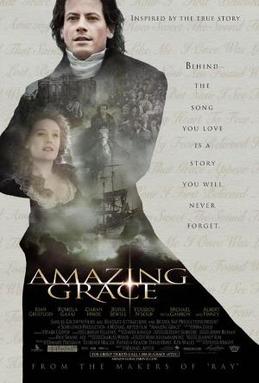5. "I'm on Fire" (Bruce Springsteen)--It was my turn with the radio on a youth temple trip to Chicago, so I naturally popped a Bruce Springsteen mix tape into the cassette deck of my then-bishop's van. When the Boss started singing about his "little girl" and whether or not her "daddy" were home, the Bishop rightfully ejected the tape, despite my protests. One of the young women present, surprisingly, sprang to my defense and suggested that maybe the Boss really was talking about the father of the "little girl." The bishop didn't buy it, and the mix tape went back into my backpack. To this day, I've never felt entirely comfortable with that song...despite its catchiness and ridiculously funny music video.
4. "Joy to the World" (Isaac Watts)--Once, when I was probably four or five, my older brother and I were watching the original Star Wars movie and became particularly inspired by the scene where Luke, Han, Leia, and Chewbacca get stuck in the Death Star's trash compactor. We commenced singing--at the top of our voices--"JOY TO THE TRASH COMPACTOR!" to the tune of a certain Christmas hymn we knew from church. Within minutes, my mom (who probably doesn't remember this incident) was at the top of the steps, scolding us (at the top of her voice) for irreverently changing the words of a sacred song. We quit, but the trash compactor scene still brings a smile to my face.
 3. "It's All Coming Back to Me Now" (Celine Dion)--When this song came out, it became the darling of stake youth dances. I once made the stupid mistake of telling a girl in the stake, who was at the time stalking me, that the song in question was good song to dance to with someone you liked, because it was so long. Well, when the next stake dance came along, guess who was at my side as soon as the song began. I danced with her, of course, but to correct my mistake, I acted like a jerk for the entire 7 minutes and 37 seconds of the song. She quit stalking me after that, and she has said very little to me since. In retrospect, I could have handled the situation a bit better...but I have never been very good at that sort of thing. Interestingly enough, the song was co-produced by Springsteen's piano player, Roy Bittan. I guess it does have some redeeming value.
3. "It's All Coming Back to Me Now" (Celine Dion)--When this song came out, it became the darling of stake youth dances. I once made the stupid mistake of telling a girl in the stake, who was at the time stalking me, that the song in question was good song to dance to with someone you liked, because it was so long. Well, when the next stake dance came along, guess who was at my side as soon as the song began. I danced with her, of course, but to correct my mistake, I acted like a jerk for the entire 7 minutes and 37 seconds of the song. She quit stalking me after that, and she has said very little to me since. In retrospect, I could have handled the situation a bit better...but I have never been very good at that sort of thing. Interestingly enough, the song was co-produced by Springsteen's piano player, Roy Bittan. I guess it does have some redeeming value.2. "I've Just Seen a Face" (The Beatles)--I made the mistake of associating this song with a girl in my first post-mission English class. Without the aid of this song, I probably would have let my crush on the girl fizzle out under the weight of my personal insecurities and overall shyness around her. With the song constantly playing on my CD player, however, I became a bit too obsessive about the girl (it was just after my mission), and I got up the nerve to ask her out on a date. The date turn out to be the worst date I've ever been on, and I still feel embarrassed for myself when I think about it today. Funny story, though: a few years after our horrible date, she started working at the BYU Bookstore, where I was already working as a janitor. For the most part, I kept up my guard and managed to avoid crossing paths with her. One day, however, I found myself walking toward her in an empty hallway. She seemed to recognize me, and uttered a friendly "hello." I pretended not to see her, though, and kept on walking.
1. "The Piano Man" (Billy Joel)--When I was about eight or nine, my sister and I spent one afternoon making posters with the old Print Shop program on my family's first personal computer. For some reason--it was probably her idea--we created a poster of a big beer mug surrounded by the phrase "And the mike smelled like beer," which we stole from Billy Joel's classic song "The Piano Man" (substituting "mike" for "microphone" because neither of us knew how to spell "microphone" at the time). Stupid kids that we were, we made the mistake of printing the poster and leaving it sitting around. When my mom found it, she scolded us (and probably sent me to my room) for making a poster about something that could kill people. This incident left a lasting impression on both my sister and me. We still talk about it and relive the shame of that horrible poster.


